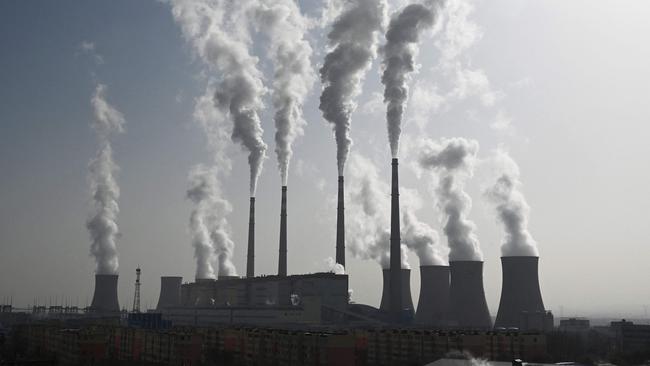Banning gas would drive an emissions explosion

Banning new natural gas projects is their reckless plan to bring back high-emitting coal worldwide. And it’s not just a fringe idea any more – it’s now the central political objective of Australia’s activist Left, leading us off course in the fight against climate change.
Don’t just take my word for this as a gas producer. Dan Walton, the national secretary of the Australian Workers Union, who has the serious task of protecting workers and creating sustainable jobs in the Australian workforce, succinctly made this point after the Greens’ latest anti-climate proclamation.
“Pound for pound, the Greens have done more to worsen climate change than any other entity in the country,” Walton said.
It’s abundantly clear to anyone following global events that these policies have led to delays and cancellations of natural gas projects, affecting developed and developing countries alike. We’re now living with the consequences. The world’s three biggest coal users each boosted their output: China’s coal-fired power rose by 9 per cent, India’s by 16 per cent and the US’s by 14 per cent.
Pakistan’s Energy Minister has just announced his nation’s plans to quadruple its domestic coal-fired capacity to reduce power generation costs in response to its struggle to access affordable LNG. A resurgence of coal-fired power is also happening in other large emerging markets such as Indonesia, Vietnam and South Africa.
Germany’s coal demand rose last year for the second year in a row as the country scrambles to restart numerous large coal-fired power stations.
Such is the insatiable demand for coal in Germany, a wind farm is being dismantled to expand the Garzweiler lignite mine.
The global move towards record high levels of coal-fired power generation, instead of less, is made all the more remarkable given the existing dominant role coal already plays in the power generation mix.

This has occurred despite around-the-clock policy, and corporate and media discussion about tackling climate change. Is it because the political solutions being promoted by a vocal yet activated minority are not really solutions at all?
To blame it all on the evils of the distant war in Ukraine is only part of the story, as the efforts to undermine the proven climate change possibility of low-carbon gas is much closer to home and predates Russia’s illegal and immoral invasion.
The campaign to cancel Australia’s gas sector, and the emissions it would reduce both domestically and around the world through LNG, has reached its nadir with the Greens, and some (but not all) of the Climate 200 teals, demanding a complete and absolute ban on new gas projects.
This would unquestionably be the biggest own goal Australia could kick in the pursuit of chasing down global Paris Agreement emissions reduction targets.
In his phoney political brinkmanship with the Albanese government, Adam Bandt is guilty of importing the same self-defeating tactics of extreme foreign campaigners.
There is a worrying school of thought gaining ascendancy in the global climate change activist movement that they should stick with dominant coal-fired power for decades more and then make the switch to green hydrogen.
Of course it is not known when or even if hydrogen can become globally commercial, but the activist logic is to stick with coal instead of “going big” today in infrastructure investments in low-carbon LNG. This school of thought must be challenged by anyone committed to real emissions progress on an international scale.
First, there are no indications yet of how green hydrogen will become commercial in global volumes even against blue hydrogen, let alone existing LNG. I note that even Fortescue Future Industries has recently cut its workforce, with reports citing the hydrogen business struggles with economics. Even if it does prove to be commercially viable, it is undoubtedly only so well out beyond 2030.
Second, it completely negates the world’s largest and most proven opportunity for global emissions reduction, which is making the switch from dominant coal to gas-fired power. In the US, the shale revolution has not only turned the US from a net importer to net exporter of energy, but also reduced the US’s emissions footprint.
This industrial strategy has now been shown around the world to rapidly result in roughly a halving of emissions intensity in the power generation sector – the world’s highest-emitting sector and the most important for achieving international Paris goals by 2030.
Without it, we are destined to repeat history, turning back to embrace high-emissions coal-fired power generation, and failing in our efforts to hit significant emissions reduction targets in seven years.
With abundant low-carbon natural gas resources sitting right under our feet, including the Beetaloo Basin, where my company operates, Australians have their greatest opportunity for immediate global climate change action.
But we must get it out of the ground quickly to turn the tables on the increasing proliferation of high-emissions coal if the world is to have a hope of hitting its Paris targets.
Joel Riddle is the CEO and managing director of Tamboran Resources.





With the Greens now demanding an immediate end to all gas projects, any semblance of a workable safeguard mechanism in this country has been hijacked by extremists whose actions will lead to a significant rise in global CO2 emissions.